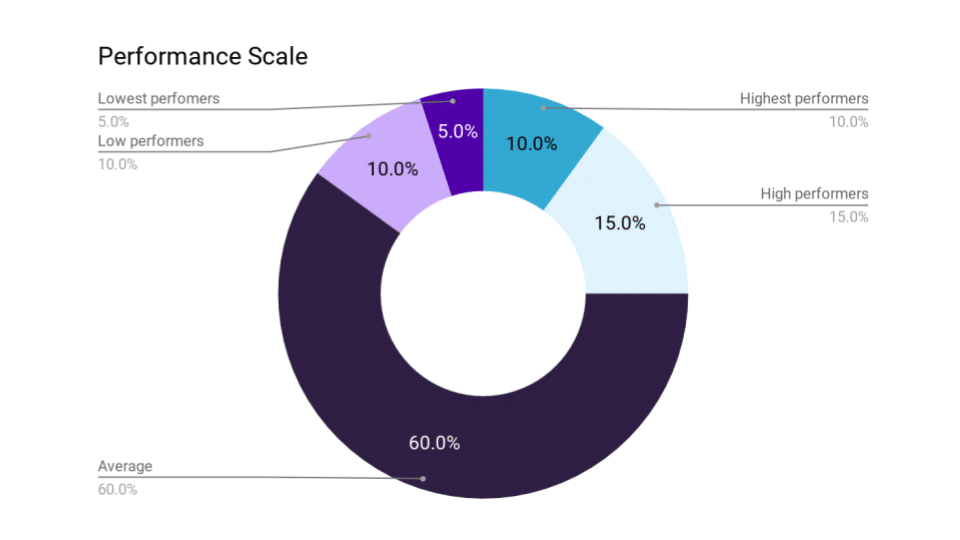How to improve employee performance
Engagement and Productivity Certification
How to increase productivity through engagement
Maintaining engagement during change
Taking action on employee feedback
How to improve employee performance
The DNA of high-performing cultures
What performance is and how to measure it
Before you can celebrate high performers or panic if you have low ones, you’ll first have to understand what performance means to you and your organization. One pitfall many companies encounter is that they don’t have a proper performance scale. Not every employee in your company can be a top performer, and that’s okay. An example of a performance scale should look like this:

Measuring performance is vital to make sure your employees are headed in the right direction. However, a recent survey put out by Towers Watson revealed that only 37% of North American companies find their performance evaluation programs to be effective. Additionally, only 26% of those surveyed said that their managers and employees are satisfied with the process.
Many factors boil down to an outdated system. For those organizations that evaluate performance once a year and do so mainly to decide monetary incentives, it’s time to make a change.
Instead of thinking about performance management in the traditional sense, you should think of it as a form of effective leadership. Stop approaching performance reviews from just a monetary angle and put more emphasis on professional growth and development of each employee. You can do this by following the model below. Click each area to learn more about a topic.
Yes, you’ll still need to assess employees and determine monetary compensation. But by taking steps to retool the process, you can focus on actually improving employee performance. That way, when you do sit down and give someone a 4 or a 3, they’ll be more aware of why that is and be more likely to work on a constructive action plan.
Additionally, by conducting more frequent, ongoing reviews—both formal and informal—the process will be less intimidating, more timely, and more productive. And don’t only consider evaluation of the employee. Evaluating the position itself at least once a year will help determine the evolution of both the job and the employee. If a position evolves over time, the person who was a perfect match for the job previously might not be the right fit now.